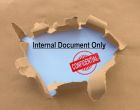Increasingly Hybrid Workforce? Ensure Meticulous Document Shredding
Hire Professional Records Storage and Management Services
The past few years have been a roller coaster for many – staying in place versus returning to the office. Several organizations decided that it didn’t have to be one or the other when it could be a bit of both. Many employers and their teams learned that much of their jobs could be successfully handled remotely from their homes. This created a new dilemma. What about all those records being stored in semi-occupied office spaces? How do you keep all the financial and legal documents, including those with personally identifiable information, safe at all times?
It’s time to shift gears and prepare for this new hybrid workplace. Using a professional records management and document destruction company is an efficient way to follow protocol, stay compliant, and secure your valuable information.
Recommended Steps to Implement in Your New Hybrid Workplace
Facing a shift in workplace dynamics doesn’t have to be overwhelming, especially when you have a plan. While you are considering the technical end of ensuring your team has the equipment they need, take these steps to downsize and update your business records management system:
- Get up to speed on your records’ life cycle (aka retention dates). Not all documents need to be kept indefinitely. Instead, they have retention dates to keep in mind. Some only need to be kept for three years. Others should be held for seven. Few need to be kept forever. In all cases, the longer you hold on to documents unnecessarily, the bigger the risk of being exposed to thieves and stealthy criminals.
- Compare your records to federal and state document retention schedules. Keep things within their required timeline. Here are a few tips to keep in mind:
- Tax returns – Keep Federal tax returns for three to seven years, depending on the situation.
- Legal documents – Any deeds, patents, property, and trademarks should be kept indefinitely.
- Personnel records – Generally speaking, you should keep personnel records for at least one year from when the employee leaves the company.
- Payroll records – The Fair Labor Standards Act (FLSA) requires you to keep payroll records for at least three years.
- Financial records – Your company’s financial and bookkeeping records must be kept for at least seven years. For certain industries, your accountant may suggest keeping them indefinitely.
- Bank statements – Similar to financial documents, bank statements need to be held onto for at least seven years unless you are part of an ongoing audit. Then, you will want to hold onto them longer.
- Identification documents – For all the licenses, permits, and insurance policies, you should only keep them until they are expired and replaced by a new record.
- Talk with an experienced records management company. When you have fewer employees around to keep an eye on things, you need to know your business documents are safe. A records management company has the facilities and procedures to ensure your documents are correctly stored and destroyed on a proper schedule.
Maximize the Advantages of Your Hybrid Workplace – Ensure Record Storage and Destruction by the Pros
Encouraging a hybrid workplace is much easier when you know your essential documents are safe and easily accessible. Crown Information Management has you covered. Our well-trained and dependable team understands the requirements for records retention. We have a safe and secure facility ready to house your vital documents. As the time comes, we can handle the shredding, too. Look to us for all your document storage and destruction needs.
For experienced help with records management and document storage to ensure your hybrid workplace runs smoothly, call Crown Information Management. You can reach us at 800-979-9545 or contact us online to learn more about our services. Put our team to work for you. We are a SOC1 Level 2 Report,NAID AAA, and PCI Certified company.






